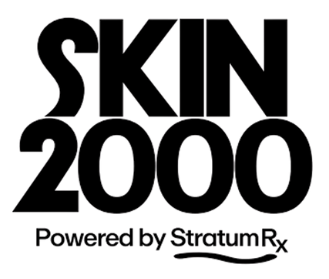
Decoding Your Skin’s Stress Signals
In our fast-paced world, stress isn’t just a feeling—it’s a silent force impacting your skin. Your complexion often mirrors your inner state, and when stress takes hold, your skin sends clear signals. Understanding these messages is the first step to a healthier, more radiant you.
The Stress-Skin Connection: It’s More Than Skin Deep
When you’re stressed, your body’s natural response system kicks into high gear. This involves the release of a key stress hormone: cortisol. While essential for short-term challenges, chronically elevated cortisol levels can wreak havoc on your skin.
Here’s how cortisol impacts your skin:
- Oil Overload: Cortisol directly stimulates your sebaceous glands to produce more oil, leading to an oily complexion, clogged pores, and those unwelcome breakouts. This increased oil production, combined with dead skin cells, creates the perfect environment for acne.
- Collagen Breakdown: Cortisol accelerates the breakdown of collagen and elastin, the vital proteins that keep your skin firm and elastic. This can lead to premature aging, showing up as fine lines, wrinkles, and sagging.
- Inflammation & Barrier Disruption: Stress triggers inflammation throughout your body, which can worsen existing skin conditions like acne, eczema, and rosacea. It also weakens your skin’s natural barrier, making it more vulnerable to environmental damage, dryness, and irritation.
Are You Seeing the Signs?
Your skin communicates its distress through various visible cues:
- Breakouts: Especially on the forehead, cheeks, and jawline, ranging from whiteheads to cystic lesions.
- Dull, Lackluster Skin: Reduced blood flow and sluggish cell turnover can leave your complexion looking tired and sallow.
- Dark Circles & Puffy Eyes: Elevated cortisol can exacerbate discoloration and swelling under the eyes, while dehydration can lead to fluid retention and puffiness.
- Increased Sensitivity & Dryness: A compromised skin barrier means your skin loses moisture faster and reacts more easily to irritants.
- Fine Lines & Wrinkles: Accelerated collagen breakdown contributes to widespread signs of aging.
- Slower Healing: Blemishes and minor wounds may take longer to fade or heal.
Your Skin 2000 Action Plan
Addressing stressed skin requires a holistic approach, combining smart skincare with essential lifestyle adjustments
Step 1: Simplify Your Routine:
When your skin is stressed, less is often more. Opt for a gentle, minimal routine to reduce irritation:
- Mild Cleanser: Cleanse gently without stripping natural moisture.
- Hydrating Moisturizer: Choose a non-comedogenic formula to repair the skin barrier and lock in moisture.
- Broad-Spectrum Sunscreen: Protect your skin daily from UV damage, especially when its barrier is compromised.
Embrace Calming Ingredients. Look for products with:
- Niacinamide (Vitamin B3): Reduces redness and inflammation, strengthens the skin barrier, and offers antioxidant protection.
- Antioxidants (Vitamin C, E, Green Tea Extract, Resveratrol): Neutralize free radicals, protect against environmental damage, soothe inflammation, and boost collagen.
- Barrier-Repairing Lipids (Ceramides, Fatty Acids, Cholesterol): Essential for a strong, stable skin barrier, preventing water loss and protecting from stressors.
- Soothing Botanicals (Centella Asiatica, Aloe Vera, Oat/Rice Milk): Calm irritation and redness, supporting healing.
- Target Breakouts: For specific blemishes, consider spot treatments with salicylic acid (unclogs pores) or benzoyl peroxide (anti-inflammatory, antimicrobial).
Step 2: Lifestyle Adjustments for Inner & Outer Peace
- Prioritize Sleep: Aim for 7-9 hours of quality sleep nightly. During rest, your skin repairs itself, produces collagen, and regulates hormones like cortisol.
- Manage Stress: Incorporate stress-reduction techniques into your daily routine.
- Mindfulness & Meditation: Promote relaxation and lower cortisol levels.
- Regular Exercise: Boosts circulation, lowers cortisol, and helps detoxify skin through sweat.
- Journaling & Deep Breathing: Simple yet effective ways to process emotions and calm your nervous system.
Step 3. Nourish Your Body: A balanced, anti-inflammatory diet supports skin health.
- Include: Omega-3 fatty acids (salmon, walnuts), antioxidant-rich fruits and vegetables (berries, leafy greens), and probiotic/prebiotic foods (yogurt, kefir).
- Limit: High-sugar foods, processed foods, excessive alcohol, and caffeine, which can increase inflammation and dehydration.
- Stay Hydrated: Drink plenty of water and use hydrating moisturizers to maintain skin elasticity and prevent dryness.
Listen to Your Skin
Your skin is constantly communicating. When it shows signs of stress, it’s an invitation to pause, re-evaluate, and give your body the care it truly needs. By combining Skin 2000’s targeted solutions with a mindful approach to your well-being, you can help your skin return to its natural, healthy glow!
